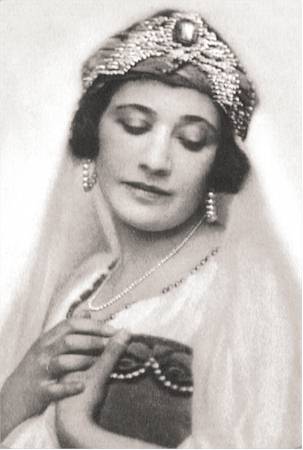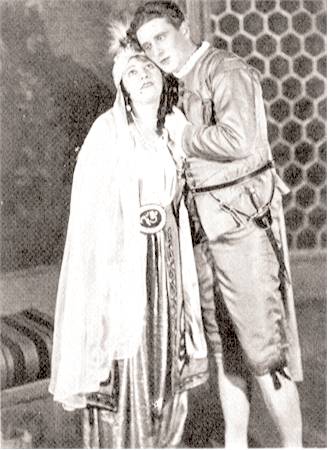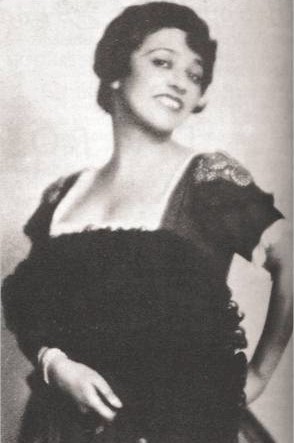Austrian-American soprano, 1895 - 1974
Biographical notes: She was born in Vienna and showed an early interest in music. One of her teachers was Mrs. Rosenthal-Ranner. She made her debut at the Frankfurt Opera where she stayed for five years. She was given all the boys’ roles in the German opera repertoire, but soon took over Rosina, Cherubino, Oscar, Urbain, Blondchen and Sophie. Her Sophie was particularly admired by public and critics. Within a short time she became one of the most promising young singers in Germany. She spent two seasons at the Opera of Darmstadt, went for further two seasons to the Volksoper Berlin, where she appeared as Konstanze, Norina and Traviata. However, the Volksoper could not hold its own against the competition of the other Berlin opera houses and was forced to close. Fritzi Jokl became a special favorite of the opera audiences in Cologne. A guest appearance had taken her to Covent Garden, where she sang Najade in Ariadne auf Naxos and Zerbinetta (as an understudy to Maria Ivogün). She was invited to the Opera of Munich, where she gained a remarkable success as Zerbinetta, the performance was conducted by the composer himself. She was immediately engaged for the Munich Festival, marking up a series of triumphs. Under Knappertsbusch’s baton she sang Susanna and Despina. Her repertory further included Gilda, Nedda, Olympia, Marzelline and Rosalinde. She took part in the revival of the composer Alessandro Stradella. Karl Böhm was her conductor in many performances. In 1932 Fritzi Jokl was invited by Otto Klemperer to join the Kroll Oper in Berlin, but political changes had set in. Klemperer had to leave and the soprano was not allowed to begin her engagement. A few special theatres continued to accept Jewish artists and Jewish audiences (Jüdischer Kulturbund), but in 1937 she was forced to leave Germany and emigrated to the United States. She got married to the author and journalist Jack Siegel, but had no chance to continue her singing career. At the Metropolitan Fritzi Jokl’s roles were the property of Lily Pons and Bidù Sayão, and the Met management was not willing to take her under contract. Her voice was then heard only in private circles.
As Konstanze
Fritzi Jokl (Konstanze) and Julius Patzak (Belmonte) Comment:
Germany produced a number of outstanding coloratura sopranos between 1920 and 1940: Lotte Schöne, Adele Kern, Maria Ivogün, Irma Beilke, Miliza Korjus, Irene Eisinger, to name but a few!
Fritzi Jokl recorded but 19 titles for Parlophone between 1924 and 1928 (13 titles on Preiser), all of them are true treasures. In my opinion, she belongs to the most delightful “light” sopranos
on record (she is certainly not as well-known as she deserved to be). Hers is a beautiful, delicate and silvery voice of enchanting sweetness. She is a superb artist,
singing not only with a remarkable agility, but also with an entirely imaginative style.
|
|||||||||||||||||||



